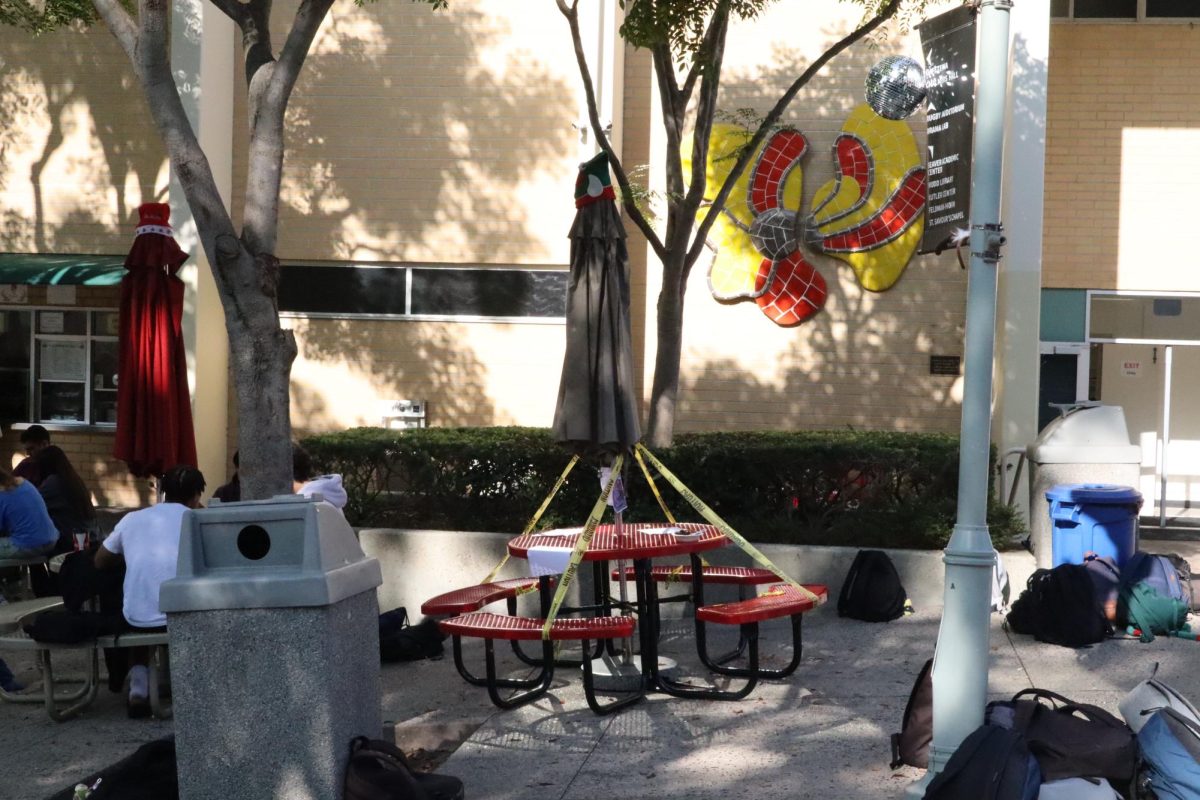Picking up a discarded T-shirt, Dean Kim ’26 stretches his aching back, legs sore after a long shift. Stomach grumbling, he wonders how much longer he has to wait until his ten-minute break. After a week of homework, managing his club and trying to stay connected with family and friends, Kim spends part of his weekend working at Hollister. Kim said the time management skills he has learned at his job help him balance his various commitments in and out of school.
“Having a part-time job really affects how I approach completing my school work,” Kim said. “As I’m in my junior year, the workload has increased, but I’ve learned to manage my time better by doing homework at school in advance. I know [the workload] can get overwhelming sometimes, but the skills I’ve learned over the years and [from] having a part-time job have taught me to manage my time well.”
Upper School Dean Erik DeAngelis said working a part-time job can demonstrate a student’s responsibility and time management skills on their college application.
“When a college sees that a student works an actual job, they are probably gaining confidence that they have a really good work ethic,” DeAngelis said. “At a job, you are learning at a young age to be accountable to other people, to keep a schedule, to be trustworthy and to learn how to interact with people very different than you. You’re learning a lot of basic life skills that you don’t get through an extracurricular activity or through volunteer service and that is a reflection of character.”
Kim said his job has taught him to independently resolve conflicts and communicate efficiently with his team.
“I work a part-time job so that I can gain experience in the real world,” Kim said. “I want to be able to know how to interact with people and understand the value of money. By working a job, I gain skills like leadership and responsibility. I have to manage my own work schedule, so, if I can’t make a shift, I have to communicate with my team and find someone that can cover for me. If one of my co-workers needs someone to cover for them, it’s my responsibility to try to help them.”
Bella Thompson ’25 babysits her two-year-old neighbor three times a week and works as a sales associate at Abercrombie and Fitch in addition to balancing her commitments to school and soccer. Thompson said her time spent working taught her to maintain a level head and positive attitude when dealing with situations at work that are out of her control.
“[I’ve learned] patience, especially from my babysitting job, and my Abercrombie job,” Thompson said. “I’ve also learned how to deal with many different people in busy times,” Thompson said. “On my first day [at Abercrombie and Fitch], I was working the cash register, and there was a customer who was rude to me. There were a lot of things I didn’t know how to do yet, and [the customer] was very impatient. I learned to stay calm in that situation and not let it affect the rest of my day.”
Kim said he believes students at the school are less likely to work part-time jobs during the school year because of the rigorous academic environment and conflicting time commitments.
“Due to the nature of Harvard-Westlake and its rigor, students don’t really have a lot of free time that they can allot to part-time jobs,” Kim said. “Students are overwhelmed with either homework, sports or other extracurriculars. Part-time jobs require responsibility and a certain amount of time dedicated towards maintaining that job.”
Director of the Learning Center Julee Madkins said a student’s ability to balance a part-time job and schoolwork is dependent on a student’s genuine interest in their work.
“If the job is something that brings meaning to student’s lives and helps them feel fulfilled, then [a part-time job] can be a good thing,” Madkins said. “However, if a student feels like a job is another [extracurricular] they have to do [that is] time consuming and cutting into their sleep, [jobs] can be really detrimental. We know that students who aren’t well-rested, who are staying up really late to do homework, [will see] their academic performance and overall wellbeing decline. Jobs can go either way.”
For many students, working during the school year is a way to help their parents pay for college tuition. The average student in California graduates with $37,810 in student loan debt and will spend one to two decades making loan payments that range from $200-300 a month, according to the Education Data Initiative. DeAngelis said students work for a variety of reasons, some of which are financial.
“There are two types students who work jobs,” DeAngelis said. “There are those who really need a job to support their families, and also people who want a job because maybe they think it’s going to look good for them later on in life.”
Alix Grube ’26, who is not able to work during the school year because of other commitments, said she recognizes the privilege of being able to prioritize school over earning money.
“The weekends are pretty much my only free time and days off from sports, so having a part-time job would definitely affect my time management,” Grube said. “A job would be something I could pursue in the summer, just not during the school year. I’m also really grateful for having the privilege to not have to work during the school year, and be able to focus on schoolwork.”
Kim said his relationships with his co-workers at Hollister have expanded his worldview and offer him new perspectives about the diverse array of communities within Los Angeles.
“My job has shaped my understanding of the LA community because I’m interacting with different people of different cultures and socioeconomic statuses,” Kim said. “I work with a really diverse group of people, and even though we’re similar in age, everyone has a different story and a different reason for working. I believe it’s really important to interact with different types of people and hear what kind of problems are going on in their communities.”
Thompson said she appreciates meeting different kinds of people through her job.
“I’ve met a lot of new people,” Thompson said. “My co-workers are so different from the Harvard-Westlake bubble we’re in. It’s been nice to have an opportunity to see so many different walks of life.”




























